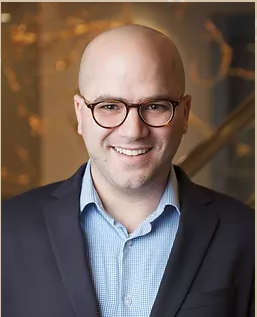Recent major breakthroughs in autism and clean energy show the importance of thinking long-term when it comes to Corporate Social Responsibility.
Corporate Social Responsibility comes in many different shapes and sizes, from significant financial support for nonprofits to energetic employee volunteerism in the community. While such initiatives often pay off immediately — think of the heroic efforts many companies and foundations made to aid people and nonprofits during the pandemic – in other cases the impact isn’t felt for years.
Two recent mega-successes show how important patience and long-term thinking are when it comes to CSR — and how powerful the results can be.
In May, former MIT post-doc and current Hebrew University Assistant Professor Haitham Amal — whose work has been supported for years by the Satell Family Foundation — published a hugely important, first-of-its-kind study in the peer-reviewed journal Advanced Science, revealing a potential future method for reducing the symptoms of autism among the millions of people living with the disorder.
The study – which built upon earlier groundbreaking research by Amal and his team – demonstrated for the first time that autism indicators increase as nitric oxide increases in the brain. When researchers inhibited the production of nitric oxide in mice, the animals’ autism-like symptoms decreased. The mice became more social and showed less repetitiveness, while also demonstrating less anxiety and an increased interest in new objects.
“This is a significant breakthrough in autism research,” said Amal, who’s hopeful that the work can lead to the development of therapeutic drugs for autism. Because of the growing prevalence of autism — according to the CDC, 1 in 36 children are identified with autism spectrum disorder – the study drew massive attention from media outlets and families around the world.
Also notable: in the wake of the study, Amal has been invited to the prestigious World Laureates Association Forum in November. The WLA is one of the world’s highest-profile organizations for laureates, with its members having earned the Nobel Prize, Wolf Prize, Lasker Award, MacArthur Fellowship and Fields Medal. It serves as a platform of international influence to accelerate basic science discoveries and shed light on future science development.
The Satell Family Foundation has supported Amal’s work in various ways. Amal was the recipient of a Satell Leadership Research Fellowship at MIT, a program that sent 29 of Israel’s top PhDs in science to MIT for four-year, all-expense-paid positions as Senior Postdoctoral Associates. In addition, the Satell Family Foundation has sponsored the Satell Post-Doctoral Program in Autism Studies at Hebrew University, as well as Amal’s lab at the university.
Early on there were no guarantees that such support would pay off, but Amal’s stupendous results — which have the potential to impact millions of lives — show the importance of patience and long-term thinking when it comes to Corporate Social Responsibility.
Another recent CSR success has taken place over an even longer time horizon. In 2005, the Satell Family Foundation was the original sponsor of Israel’s first energy program, led by internationally renowned researcher Gidi Grader at Technion—Israel Institute of Technology.
After two years of recognized pioneering success with alternative energy, in 2007 this project sparked significant expansion, uniting experts throughout the world under the Grand Technion Energy Program (the first part of which was the Satell Lab).
A dozen years later, the work helped produce H2Pro, a startup company that’s pioneering the production of clean hydrogen energy and will be one of the most significant players in fighting climate change. In April, the company, which has now received financial backing from Bill Gates’ climate fund, was named by Bloomberg as one of “12 Climate Tech Innovators Building a Net Zero World.” In recent months the company has announced significant partnerships with global renewable energy companies, and by 2024 H2Pro aims to have commercial production of around 10 tons per day of green hydrogen. Green hydrogen will be crucial in creating a decarbonized world since it doesn’t emit carbon dioxide during its usage.
Recently, Technion awarded Ed Satell with its rarely given Albert Einstein Award, in part to recognize Ed’s important role in starting the development of clean energy. It’s another example of where the long-term impact of CSR can’t always be envisioned — but where early—and sustained—support can pay off in world-changing ways.
As the leading CEO organization dedicated to Corporate Social Responsibility, the Satell Institute fosters important partnerships between businesses and nonprofits that improve communities and the world at large. For companies, paying attention to society’s immediate needs is important. But so is looking out over the horizon and making bets on work that will pay off in the decades ahead.


